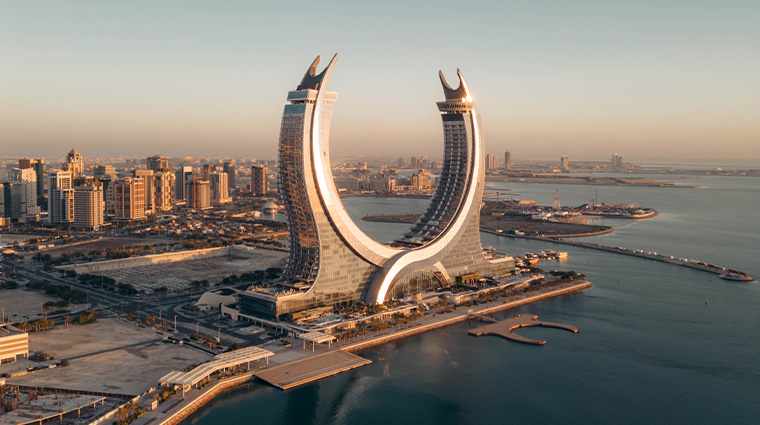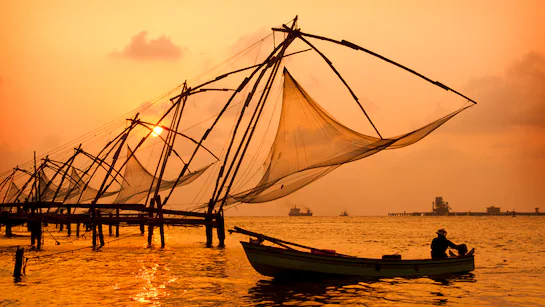This guide shares essential tips on safety, budgeting, recommended length of stays, accommodations, and personal insights to help you plan a smooth, memorable trip.
Why Mexico Should Be Your Next Travel Destination
From vibrant cities and ancient ruins to crystal-clear beaches and lively markets, Mexico offers a diverse set of experiences.
Having traveled extensively across the country, I can tell you Mexico’s warmth, flavors, and culture make every visit unforgettable. Regardless of your travel style, there’s something for everyone.
Mexico City—The Heart of Culture and History
Mexico City is a vibrant metropolis boasting world-class museums like Museo Nacional de Antropología, extensive street art, and historic sites such as the Zócalo and the ancient Aztec ruins of Templo Mayor. The Frida Kahlo Museum in Coyoacán is a must-see for art lovers.
Stay: Trendy neighborhoods like Condesa and Roma offer boutique hotels and lively nightlife.
Costs: Hotel rooms average $50-$100 per night; meals cost from $5 to $20.
Getting Around: Use Uber or the Metro, which is cheap and extensive but avoid rush hours for comfort.
Yucatán Peninsula – Beaches, Ruins, and Nature
Home to the iconic Mayan ruins of Chichén Itzá and beautiful beach towns like Tulum and Playa del Carmen, the Yucatán blends history with seaside relaxation.
Things to See & Do: Snorkeling in cenotes, exploring Sian Ka’an Biosphere, and visiting colonial Mérida.
Safety: Tourist areas are very safe with visible police presence; nighttime caution is advised in nightlife zones.
Oaxaca City—A Gastronomy and Culture Hub
Oaxaca is famed for its vibrant indigenous culture, colorful markets, and exceptional cuisine like mole and tlayudas. The nearby ancient Zapotec ruins of Monte Albán are breathtaking.
Personal Insight: Staying with a local host family was my best way to experience authentic festivities.
Budget: Affordable lodgings from $30, delicious street food under $5 a meal.
Puerto Vallarta—The Pacific Paradise
This charming coastal city blends beaches, luxury resorts, and a historic old town with lively markets. Water activities like whale watching and snorkeling are top draws.
Pros: Safe, family-friendly, and cosmopolitan amenities.
Cons: Can be crowded during high season; book in advance.
San Miguel de Allende – Artistic Colonial Charm
A UNESCO World Heritage site known for its baroque Spanish architecture and lively arts scene, this town delights with cobblestone streets and colorful festivals.
Recommended Length of Stay: 3-4 days to fully enjoy galleries, cafes, and local crafts.
Budget Tip: Visit during the off-season (fall) for better deals and fewer crowds.
Los Cabos—Luxury & Adventure on Baja Peninsula
Known for dramatic desert landscapes and stunning beaches, Los Cabos mixes luxury resorts with outdoor activities like sport fishing, diving, and ATV tours.
Money-Saving Tip: Book excursions early and explore local eateries outside resort zones for cheaper meals.
How to Get There: Fly into Los Cabos International Airport (SJD) with many direct flights from the US.
Sayulita—Bohemian Surf Town
If you crave a laid-back beach vibe with great waves, Sayulita is your spot. It’s perfect for surfing, yoga, and enjoying vibrant local markets.
Pro Tip: Rent a scooter to explore nearby hidden beaches and savor fresh seafood.
Typical Costs: Budget-friendly hostels start around $15/night; meals cost $5-$10.
Taxco—The Silver City
A stunning colonial town perched on steep hills, Taxco is famous for its silver mining history and vibrant markets selling exquisite silver jewelry.
Things to Do: Visit Santa Prisca Church and shop for authentic silver crafts.
Length of Stay: 1-2 days, ideal for a day trip or overnight from Mexico City.
Isla Holbox—Untouched Tranquility
This car-free island north of the Yucatán Peninsula offers island peace, wild flamingos, and bioluminescent waters. It’s perfect for unplugging and reconnecting with nature.
Travel Tips: Expect rustic accommodations and seasonal tourist influx; book early in winter.
Getting There: Take a ferry from Chiquilá; avoid bringing cars.
Traveler Safety Tips for Mexico
Mexico is as safe as many popular tourist countries if you take some basic precautions. I always stick to well-trafficked tourist neighborhoods, avoid nightlife travel alone, and use registered taxis or ride apps like Uber. Keep valuables secure and stay alert, especially in crowded markets or public transport.
Check your government’s travel advisories before and during your trip for the latest safety updates, as conditions can change.
Typical Costs & Budget Recommendations
For mid-range travelers, expect around $50-$100 per night for hotels, $10-$30 per day on meals, and affordable local transport. Tours and entrance fees vary by location but generally range from $10 to $50.
Money-saving tips include visiting in shoulder seasons, eating street food cautiously, booking tours in advance, and choosing local buses or colectivos instead of taxis when possible.
Tips on Transportation and Getting There
Most major cities and tourist spots are accessible by domestic flights, buses, or rental cars. Ride-hail apps like Uber are widely available in Mexico City, Guadalajara, and Puerto Vallarta. For coastal regions, ferries connect islands like Holbox easily.
When is the Best Time to Travel to Mexico?
The dry season from November to April is ideal for most areas, with pleasant temperatures perfect for sightseeing and beach days. Avoid the rainy summer months if possible, especially in tropical zones prone to hurricanes.
Recommended Tours and Local Experiences
Consider guided tours of archaeological sites like Teotihuacán and Chichén Itzá, cooking classes for traditional dishes, and nature tours to cenotes and biospheres. Personalized walking tours in colonial towns uncover hidden gems.
Emergency Contacts and Helpful Resources
- Dial 911 for emergencies across Mexico
- U.S. Embassy in Mexico City: +52 55 5080 2000
- Consular Assistance Email: acs_mexico@state.gov
- Local Police: 089 (non-emergency)
- Tourist Police (major cities): Usually reachable via local emergency services
Pros
- Rich cultural heritage and diverse landscapes
- Affordable travel and dining
- Welcoming locals and vibrant festivals
- Abundance of natural attractions like beaches and cenotes
Cons
- Varied safety levels require traveler vigilance
- Some areas have language barriers—learning basic Spanish helps
- Transportation infrastructure can be inconsistent in rural zones
Frequently Asked Questions—Mexico Travel
Is Mexico safe for tourists today?
Most tourist areas are safe if you follow common-sense precautions such as avoiding isolated places at night, using reputable transportation, and keeping valuables secure.
What is the average daily budget for Mexico?
A comfortable budget for mid-range travelers is $70-$120 USD per day, including accommodations, meals, and activities.
When is the best time to visit Mexico?
The dry season from November to April is ideal for most regions, especially for beach vacations and sightseeing.
How do you get around in Mexico?
Urban areas have Metro systems and Uber, while buses and colectivos connect smaller towns. Domestic flights are affordable and save time for long distances.
What are some must-see places in Mexico?
Mexico City, the Yucatán Peninsula, Oaxaca, Puerto Vallarta, San Miguel de Allende, and the Baja Peninsula are among the top must-see destinations.
Final Travel Tip
Plan your itinerary to focus on one or two regions for a richer experience rather than trying to see all of Mexico at once. This approach allows you to savor local culture, food, and landscapes with less rush and more safety.




